Wondering if you have a hormonal imbalance? It’s a common question that a lot of women are asking themselves, and unfortunately, hormonal imbalances are pretty common in women. In fact, they’re so common that many hormonal imbalances symptoms are seen as ‘normal’. What makes it worse is that women can feel fobbed off when we try to investigate these imbalances, feeling they have to learn to deal with the debilitating symptoms. But I’m here to tell you that you don’t have to learn to deal with hormonal imbalances; there’s actually a lot you can do to balance your hormones naturally, and this is how.
Understanding Hormonal Imbalances
Hormones act as the body’s chemical messengers, delivering instructions that tell the organs and systems of the body to do something. We have discovered around 50 different hormones in the human body, and their functions range from regulating mood, weight, appetite, energy and reproductive health. Another thing to be aware of is that hormones work in sync, like an orchestra, where each hormone uniquely contributes to the harmony of overall well-being. When we have one hormone out of tune, it affects the symphony of the others.
Let’s go through a few of the main hormones responsible for female health:
Oestrogen
Oestrogen regulates the reproductive system and plays a key role in female health. Aside from supporting menstrual health and the reproductive system, it has other benefits, too. Some other benefits include; supporting bone health, cardiovascular health and influencing brain function and mood. We need to get the balance right with oestrogen, as both too much and too little can cause some unwanted symptoms.
Symptoms of oestrogen imbalances:
- High levels: May cause breast tenderness, mood swings, fibroids, very painful and heavy periods. Spoiler alert: Just because period pains are common, it does not mean they have to be your normal (yes, we can help reduce period pains naturally!).
- Low levels: This can lead to irregular menstrual cycles, very light periods, depression, hot flashes, and vaginal dryness.
Progesterone
Progesterone works alongside oestrogen to regulate the menstrual cycle and support pregnancy. It does so by helping to prepare the uterine lining for a fertilised egg and then maintaining a healthy pregnancy for the first few weeks. If there isn’t conception that month, progesterone levels drop, which triggers the shedding of the uterine lining (a period).
Progesterone has other functions, too; I like to think of it as our ‘Zen’ hormone, as it helps the body relax and balances out the adverse effects of too much oestrogen. An important thing to be aware of is that progesterone is produced after ovulation. If a woman isn’t ovulating, she won’t have optimal levels of progesterone.
Symptoms of progesterone imbalances:
- Low levels: Contribute to irregular periods, infertility, mood swings, anxiety and difficulty sleeping.
Testosterone
Testosterone is often associated with men, but women produce it too, but in smaller amounts. It contributes to muscle mass, bone density, libido, and overall energy levels, showing the importance of getting at optimal levels. Higher levels of testosterone are often seen in women with a diagnosis of PCOS.
Symptoms of testosterone imbalances:
- High levels: can lead to acne, oily skin, hair thinning, or excess facial and body hair (hirsutism).
- Low levels: Contribute to fatigue, low libido, and mood swings.
Cortisol
Known as the “stress hormone,” cortisol helps the body respond to stress. Because modern life can be increasingly stressful, cortisol often gets labelled as the bad guy, as it’s produced in high amounts to deal with the stress life throws at us. But we still need healthy doses of cortisol because in the correct amount, it helps maintain energy levels, reduce inflammation, and support brain function. It follows a circadian rhythm, with levels typically peaking in the morning (to give you energy), and decreasing in the evening (so you can get to sleep).
Symptoms of cortisol imbalances include:
- High levels: Can lead to weight gain, mood swings, difficulty sleeping, high blood pressure and digestive issues.
- Low levels: Low levels of cortisol can happen if we have been chronically stressed for long periods, to the point of burnout. It results in chronic fatigue, depression or low mood, and low blood pressure.
Thyroid Hormones
The thyroid gland produces thyroid hormones, primarily thyroxine (T4) and triiodothyronine (T3), which regulate metabolism, energy production, and body temperature.
Symptoms of thyroid imbalances include:
- High levels: Associated with anxiety, weight loss, hair thinning and a rapid heartbeat (hyperthyroidism).
- Low levels: Contribute to fatigue, weight gain, constipation, hair thinning, and sensitivity to cold (hypothyroidism).
Identifying Hormonal Imbalances
As you can see, a few of these hormonal imbalances overlap with their symptoms. So, how do we know which ones to focus on to help balance hormones naturally? The best way to pinpoint imbalances is by testing. I like to use blood tests or the DUTCH test to look for hormonal imbalances. You can learn more about them here.
Once you have identified which hormones are off balance, the next step is to determine why they’re off balance.
Addressing the Root Causes of Hormonal Imbalances
Hormones don’t just go off balance because they feel like it. There’s usually a cause, and when one hormone goes off balance, it can affect the others. This makes it easier to balance hormones naturally because once we find the cause, we can work on multiple hormones simultaneously. These are some common causes of hormonal imbalances:
Stress
– Chronic stress triggers the release of cortisol and keeps us in fight or flight mode, which disrupts the delicate hormonal balance. In these cases, your body will prioritise cortisol over making progesterone. Stress can also deplete the body of nutrients needed to create and balance hormones.
Nutrient Deficiencies
– Our bodies need the correct raw materials to create healthy, balanced hormones. Amino acids (protein), healthy fats, magnesium, zinc, and B vitamins are all essential co-factors in the creation of hormones.
Blood Sugar Imbalances
– Fluctuations in blood sugar levels can impact insulin and cortisol. High glucose and insulin levels have been found to increase both oestrogen and testosterone.
Gut Issues
– An unhealthy gut can compromise nutrient absorption and contribute to inflammation, both of which can affect hormonal balance. The gut microbiome has also been found to influence hormones directly through a collection of bacteria known as the estrobolome.
Although it’s best to test hormones and find the underlying cause, there are some basics to get right first to help balance your hormones naturally. These are my favourite hormone tips:
5 Steps to Balancing Hormones Naturally
1. Balance Glucose Levels
This is the most important thing to get right because if you’re on a blood sugar rollercoaster all day, it will affect your stress levels and your sex hormones. An easy way to help balance blood glucose levels is by adding proteins such as meat, fish, eggs, dairy, nuts, or seeds to every meal. To find out more about how to balance blood glucose levels, read this blog.
2. Increase Cruciferous Veg
Cruciferous vegetables are fantastic at supporting the clearance of used oestrogen and helping with the natural detoxification of hormones.
Try to aim for 3-4 portions of cruciferous vegetables per week; you can choose from broccoli, cauliflower, rocket, mustard greens, bok choy, turnips and kale.
3. Include Healthy Fats
Essential fatty acids are necessary for the production of hormones, and they also help to reduce inflammation and support mood – which will have a healthy knock-on effect on your sex hormones.
– Prioritise Omega-3 from oily fish, avocado, extra virgin olive oil, eggs, nuts and seeds.
4. Try a B Complex & Magnesium
I always promote a food-first approach. However, in some cases, supplements are needed to provide higher dosages to balance hormones naturally.
In periods of stress, we can become depleted of both magnesium and B vitamins. Both magnesium and B vitamins are essential for the production of progesterone and the detoxification of oestrogen. Other benefits of these nutrients are that they help the body adapt to stress and can support sleep, which leads me to my final tip.
5. Lifestyle Factors: Sleep & Exercise
Sleep and exercise are fundamental to hormone health. Lack of sleep is a stress on the body, and chronic lack of sleep can cause glucose levels to rise.
Exercise is fantastic for helping to regulate blood glucose, insulin, oestrogen and testosterone. If you exercise in the morning (and bonus points for doing it outside!), you’ll help to regulate your sleep-wake cycle. This means you’ll get better quality sleep at night and have more energy throughout the day.
Looking to Test Your Hormones?
Balancing your hormones naturally can be done, but we must take the correct steps. The first step is to find out which hormones are off-balance, and the second is to look at what’s causing the hormonal imbalance. From there, we can put in a personalised food, supplement and lifestyle protocol to help you rebalance your hormones naturally. If you want to have a chat about testing and how nutrition sessions for hormonal balance work, use this link to book a call.





0 Comments